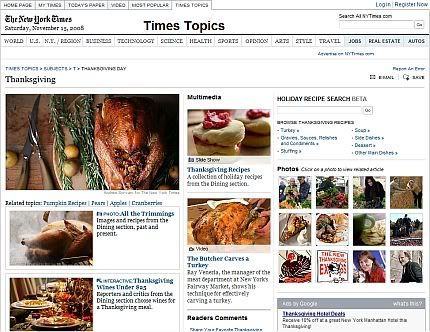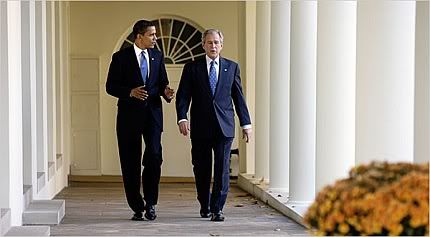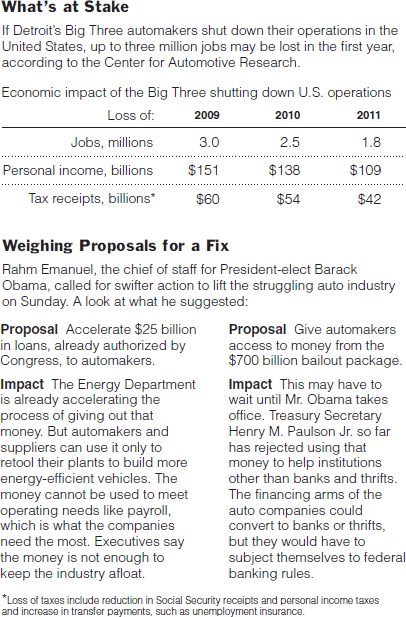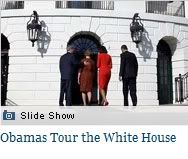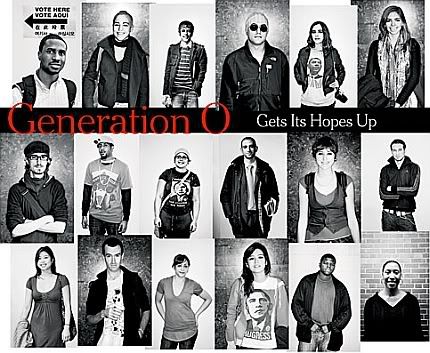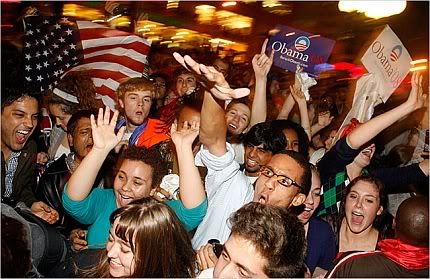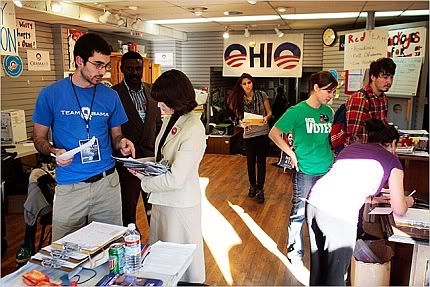Los chico(a)s de la generacion Internet estan bien !
 INTERNET/PIB |
| Nov 13th 2008 The kids are alright The net generation |
 |
| Jupiter Images Web wizards. |
WORRIES about the damage the internet may be doing to young people has produced a mountain of booksa suitably old technology in which to express concerns about the new. Robert Bly claims that, thanks to the internet, the "neo-cortex is finally eating itself". Today's youth may be web-savvy, but they also stand accused of being unread, bad at communicating, socially inept, shameless, dishonest, work-shy, narcissistic and indifferent to the needs of others. The man who christened the "net generation" in his 1997 bestseller, "Growing Up Digital", has no time for such views. In the past two years, Don Tapscott has overseen a $4.5m study of nearly 8,000 people in 12 countries born between 1978 and 1994. In "Grown Up Digital" he uses the results to paint a portrait of this generation that is entertaining, optimistic and convincing. The problem, he suspects, is not the net generation but befuddled baby-boomers, who once sang along with Bob Dylan that "something is happening here, but you don't know what it is", yet now find that they are clueless about the revolutionary changes taking place among the young. "As the first global generation ever, the Net Geners are smarter, quicker and more tolerant of diversity than their predecessors," Mr Tapscott argues. "These empowered young people are beginning to transform every institution of modern life." They care strongly about justice, and are actively trying to improve societywitness their role in the recent Obama campaign, in which they organised themselves through the internet and mobile phones and campaigned on YouTube. Mr Tapscott's prescient chapter on "The Net Generation and Democracy: Obama, Social Networks and Citizen Engagement" alone should ensure his book a wide readership. Contrary to the claims that video games, Facebook and constant text-messaging have robbed today's young of the ability to think, Mr Tapscott believes that "Net Geners" are the "smartest generation ever". The experience of parents who grew up watching television is misleading when it comes to judging the 20,000 hours on the internet and 10,000 hours playing video games already spent by a typical 20-year-old American today. "The Net Generation is in many ways the antithesis of the TV generation," he argues. One-way broadcasting via television created passive couch potatoes, whereas the net is interactive, and, he says, stimulates and improves the brain. There is growing neuroscientific support for this claim. People who play video games, for example, have been found to process complex visual information more quickly. They may also be better at multi-tasking than earlier generations, which equips them better for the modern world. Mr Tapscott identifies eight norms that define Net Geners, which he believes everyone should take on board to avoid being swept away by the sort of generational tsunami that helped Barack Obama beat John McCain. Net Geners norms: These patterns have important implications for the workplace. Employers who ban the use of Facebook in the officethe equivalent of forbidding older staff to use their rolodexesshow clear signs of being out of touch, he argues. Two out of three Net Geners feel that "working and having fun can and should be the same thing". That does not mean they want to play games all day, but that they want the work itself to be enjoyable. They also expect collaboration, constant feedback and rapid career advancement based on merit. How they will react to being fired en masse as the downturn worsens remains to be seen, but Mr Tapscott suspects they will take it in their stride. Two things do worry Mr Tapscott. One is the inadequacy of the education system in many countries; while two-thirds of Net Geners will be the smartest generation ever, the other third is failing to achieve its potential. Here the fault is the education, not the internet, which needs to be given a much bigger role in classrooms (real and virtual). The second is the net generation's lack of any regard for personal privacy, which Mr Tapscott says is a "serious mistake, and most of them don't realise it." Already, posting pictures of alcohol fuelled parties, let alone mentioning drug use or other intimate matters, is causing a growing number of job applicants to fail the "reference test" as employers trawl Facebook and MySpace for clues about the character and behaviour of potential employees. More optimistically, the Net Geners are much more positive than their predecessors about their family. Half of those interviewed regard at least one parent as their "hero". Mr Tapscott believes the internet is producing an improved, more collaborative version of family life, which he calls the "open family". Parents increasingly recognise that their youngsters have digital expertise they lack but want to tap, and also that their best defence against their children falling foul of the dark side of the internet, such as online sexual predators, is to win their children's trust through honest conversation. Ironically, Mr Tapscott's recommended "platform" for this essential social networking could hardly be more old tech: the family dinner table. |
Open article at "The Economist" Web Site |
Copyright © The Economist Newspaper Limited 2007. All rights reserved. |
